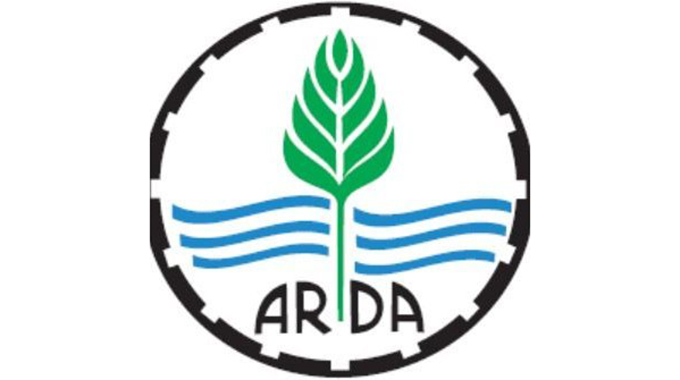ARDA targets 50 000ha for joint venture

Oliver Kazunga Senior Business Reporter
THE Agricultural and Rural Development Authority (ARDA) is embarking on a joint venture farming programme targeting to put at least 50 000 hectares under crop in phase one of the planned initiative, starting with the 2022/23 summer cropping season.
Presently, the authority is undergoing transformation to spearhead rural development and industrialisation to ensure national food, feed, fibre, biofuels and seed security for the attainment of Vision 2030, when Zimbabwe is expected to be an upper middle income country.
According to the World Bank, Middle Income Countries (MICs) are a diverse group by size, population, and income level. They are defined as lower middle-income economies – gross national income of per capita between US$1 036 and US$4 045; and upper middle-income economies – those with a GNI per capita between US$4 046 and US$12 535 (2021).
Under Vision 2030, the Second Republic, led by President Mnangagwa, is targeting to transform Zimbabwe into an upper middle-income economy with GNI per capita would be at US$3 500.
At the moment, the country is classified as a middle income economy.
Under the old dispensation, most ARDA estates across the country were idle and underutilised owing to years of neglect and lack of investment. However, the authority’s fortunes have since taken a new trajectory and has been awakening from its slumber since the advent of the Second Republic in November 2017.
In statement, ARDA said pursuant to the joint venture programme, it was inviting A1, A2 and commercial farm owners to express interest to join the market-led programme in the forthcoming summer crop production.
“The hectarage targeted under phase 1 is at least 50 000ha for summer cropping.
“The ARDA joint-venture programme shall encompass two principal components as follows: (a) farm owners providing access to land/farms and labour. (b) ARDA providing access to qualified and competent staff for management of the joint venture farms, inputs and working capital support, plant and equipment, access to finance, insurance cover, technical skills transfer, market linkages and favourable farmer returns,” said the authority.
Interested A1, A2 and commercial farm owners should contact ARDA.
Last year, Lands, Agriculture, Fisheries, Water and Rural Development Minister Dr Anxious Masuka pointed out that the Government wanted the authority to grow the total area under crops from its 21 estates dotted across the country from 13 000ha to 88 000ha within three years.
The authority’s land holding portfolio straddles 142 000ha at all its estates scattered across the country and the Government wants the combined 88 000ha that is arable to be under different crops to strengthen the revitalisation of the agriculture sector. A vehicle for food, fibres and bio-fuel security, ARDA has the potential to contribute 500 000 tonnes of cereals annually, 50 000 tonnes of fibre and a massive 250 million litres of ethanol.
Speaking by telephone yesterday, agricultural economist Mrs Shamiso Kunzekweguta said the joint venture initiative by ARDA was a step in the right direction as far as boosting national food security and enhancement of productivity in the agriculture sector.
“As you might be aware, agriculture is one of the major economic mainstays of this country and the initiative that ARDA is embarking on is a welcome development as it will go a long way in boosting national food security and productivity in the agriculture sector.
“It is therefore imperative that all those farmers with land which they are failing to put into good use should seize the opportunity being presented by ARDA to utilise the land,” she said.
“Most importantly, remember the Government has indicated the intent to reclaim all the underutilised farms across the country and redistribute them to prospective investors, so it is in best interest of all those with underutilised land to enter into such partnership arrangement with ARDA to promote rural development and industrialisation.”
Meanwhile, the Zimbabwe Land Commission has announced that it is presently carrying out a National Comprehensive Agricultural Land Audit under Phase 4.
The exercise, which began on June 18, 2022 and ends on July 2022 was being carried out in all the gazetted categories of agricultural land that include old resettlement schemes, A1 villagised, A1 self-contained, A2 (small, medium and large scale), per-urban farms, large-scale commercial farms, small-scale commercial farms, commercial farm settlement scheme, commercial agricultural plots, 3-tier farms and institutional farms.
The objectives of the land audits among others include to collect and analyse land allocation data and extent of land distribution with respect to gender, equity classification, environmental management, extent of multiple land ownership and double allocations.
The land audits are also used by the Government to assess land use planning with respect to farm sizes, ecological and farming enterprises and activities as well as to assess the extent of tenure security and land rights of beneficiaries.










Comments